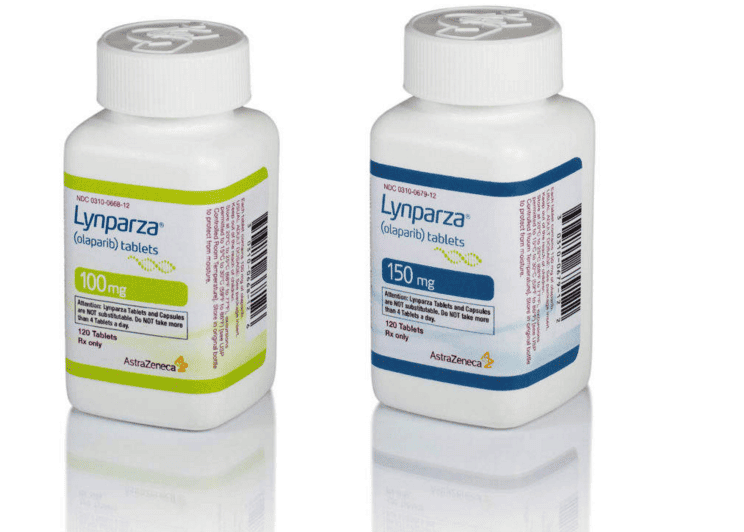
AZ/Merck & Co have unveiled more positive results from a phase 3 study of PARP inhibitor Lynparza, this time in prostate cancer.
The results from the phase 3 PROfound trial were presented at the European Society of Medical Oncology (ESMO) in Barcelona. The study investigated Lynparza (olaparib) in metastatic, castration-resistant prostate cancer (mCRPC) patients, whose disease had progressed on prior treatment with new hormonal agent (NHA) treatments – such as Johnson & Johnson’s Zytiga (abiraterone acetate) or Pfizer’s Xtandi (enzalutamide).
The study focused on men with mutations in their homologous recombination repair (HRRm) genes – BRCA 1, BRCA 2, ATM and 11 other HRRm genes.
Lynparza demonstrated a significant response in this patient population – it reduced the risk of disease progression or death by 66% in men with BRCA 1/2 and ATM gene mutations.
The results also showed that Lynparza improved the time men with these specific mutations lived without disease progression or death – 7.4 months for those treated with the drug compared to 3.6 months for those treated with the NHA treatments.
The study also met the key secondary endpoint of radiographic progression-free survival in the overall HRRm patient population, as Lynparza reduced the risk of disease progression or death by 51%. The improved rPFS was 5.8 months for those treated with Lynparza compared to 3.5 months for those on the NHA treatment arm.
“PROfound validates the concept of PARP sensitivity across multiple genes associated with homologous recombination repair in this disease, and marks the first positive phase 3 trial using a molecular biomarker to identify men for targeted treatment for metastatic castration-resistant prostate cancer,” said José Baselga (pictured below), executive vice president, oncology R&D at AstraZeneca.

José Baselga
In August, the two pharma companies reported positive phase 3 data for Lynparza in advanced castration-resistant prostate cancer, strengthening their ambition to push the therapy in this area. The drug was compared to Xtandi or Zytiga in the second-line setting, and also focused on patients with HRRm gene mutations.
The PARP inhibitor category holds particular significance in prostate cancer, as these therapies promise to unlock a new targeted treatment pathway that is independent of the traditional approach based on androgen inhibition – at least in a select patient population.
The results also continue to build the case that Lynparza is leading the PARP inhibtor category, as it competes with Clovis Oncology’s Rubraca (rucaparib), GlaxoSmithKline/Tesaro’s Zejula (niraparib) and Pfizer’s Talzenna (talazoparib).
AZ/Merck and GSK came to blows earlier this week at ESMO, both revealing results from phase 3 studies of their respective PARP inhibitors in ovarian cancer. However, as Lynparza continues to demonstrate positive data in additional indications it may prove difficult for GSK’s Zejula to compete.




